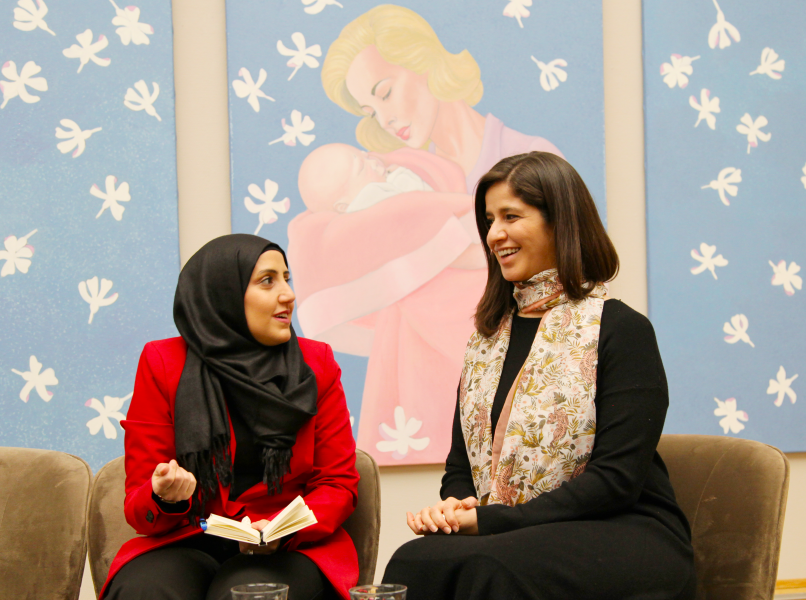On February 8, ICTJ held an event in The Hague on the missing and disappeared in Syria, in partnership with the Dutch Ministry of Foreign Affairs. The event brought together activists, journalists, artists, and policymakers to reflect on the critical humanitarian needs of victims and their families and the role of the newly established international body on the missing in Syria, which is mandated in part to address these needs. It featured a panel discussion as well as the European premiere of the animated documentary film “Tomorrow We Continue” and a showcase of Syrian art and music.
The event, entitled “Mental Health and Psychosocial Support for Families of the Missing in Syria,” shed light on the myriad challenges with which families of the missing and forcibly disappeared in Syria must grapple. However, it focused specifically on the mental health and psychosocial dimension of these challenges and the support that they need to address them. “Without addressing the mental and social needs of victims and societies, there is no way to build sustainable social cohesion and a peaceful future,” explained the Special Envoy of the Kingdom of the Netherlands to Syria, His Excellency Geijs Gerlag, in his remarks opening the event. “Therefore, it’s necessary to take into account mental health and psychosocial support in every effort that we all make for the future of Syria. And frankly for every other conflict afflicted area in the world.”
Hanny Megally, a member of the Commission of Inquiry on the Syria Arab Republic, moderated the panel, which included Farah Saad of the Families for Freedom; Anwar Majanni, programs director at The Day After; Ahmad Sheikh Sidi, director of the Center for Civil Society and Democracy in Turkey; and Yusra Al-Kailani, a psychotherapist and resilience programming trainer at the Center for Victims of Torture. Panelists discussed the new international body, which will have a humanitarian focus and will be tasked with among things providing aid to the families of the missing and disappeared, including psychosocial support, a key and long-sought demand of families and survivors.
The short, animated documentary film “Tomorrow We Continue” was also screened for the first time in Europe. Based on true stories, the film follows a young mother of two whose husband was detained and disappeared by security forces in Syria some years ago. It takes the viewer on her journey as a refugee searching for safety in Berlin and depicts the daily struggles she encounters once settled as she tries to earn a living and care for her children while continuing the search for her husband. ICTJ and its eight Syrian civil society partners from The Bridges of Truth project produced the film, which has won numerous international awards at various festivals including awards for best short animation documentary, best original music, and best human rights film.
Farah Saad, a member of Families for Freedom and a refugee in the Netherlands, said the film reminded her of her own journey as a former detainee and as the sister of two missing siblings. “I thought once I was released from Assad’s prisons that I would be able to escape the suffering and darkness I felt during that time,” she said. “But it turned out that my entire being had turned into a prison and that my mind was filled with darkness.” She went on to say that even though she had reached safety in the Netherlands, the trauma she had endured did not magically go away and is something she continues to struggle with each day.
For years, victims and victims’ groups, family associations, and civil society organizations have advocated for the establishment of an institution for the missing in Syria and their families. Last June, their demands were finally heard when the UN General Assembly adopted a resolution creating such an institution. As the mechanism is being set up, it is of crucial importance that the mental health needs of family members take a front seat and are considered in every step of the planning and implementation process.
_____________
PHOTO: Farah Saad (Families for Freedom) and Yusra Al-Kailani (Center for Victims of Torture) chat during the ICTJ-organized event in The Hague on February 8, 2024. (Ahmad Mohamad/Syrian Institute for Justice)
